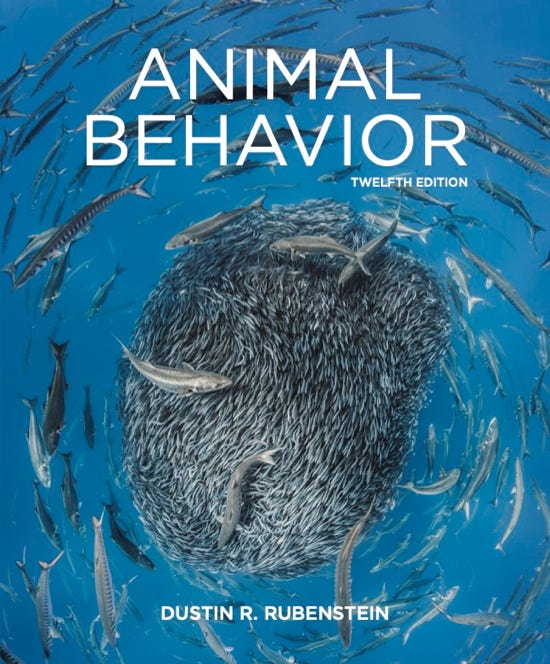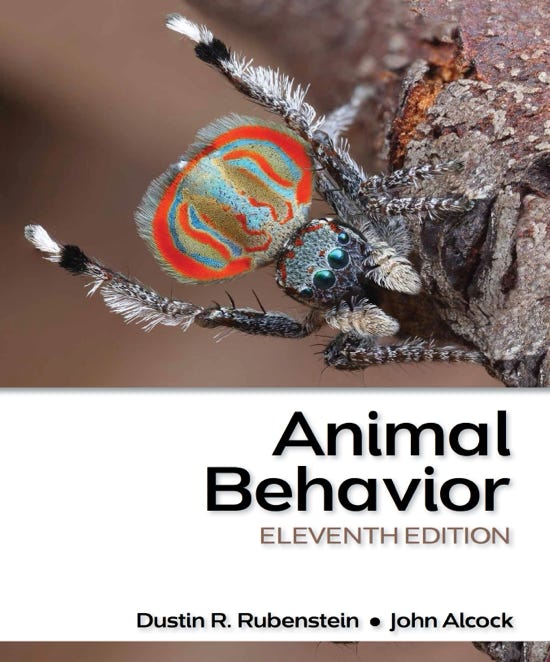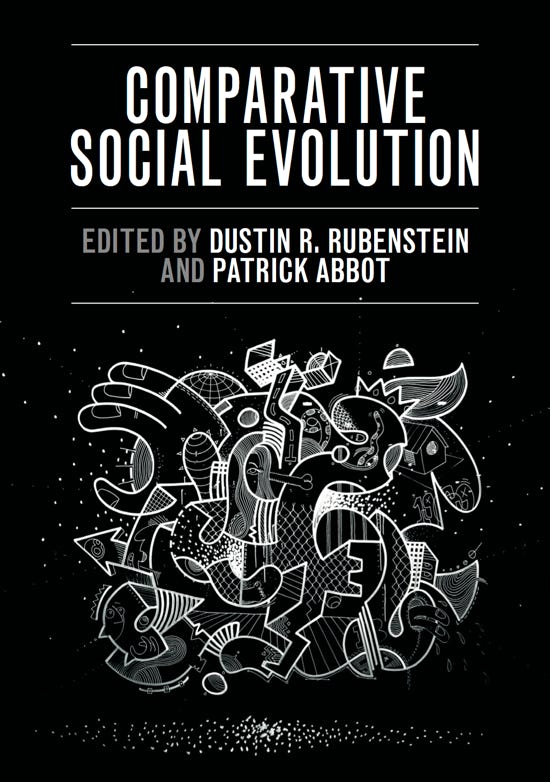Rubenstein DR and J Alcock. 2018. Animal Behavior, 11th Edition. Oxford University Press, New York.
“Kudos on an excellent job with this new edition. I found the flow to be particularly easy to follow, and the case examples are excellent demonstrations of each described theme. It strikes the right chord as an introductory textbook for undergraduates.“ MOLLY CUMMINGS, University of Texas at Austin
“I have tried other textbooks but always seem to come back to Alcock. The style of writing is very readable/accessible for undergraduate students. Overall, I am very pleased with the reorganization and addition of the new coauthor. Rubenstein is an excellent choice.” JOSEPH SISNEROS, University of Washington






